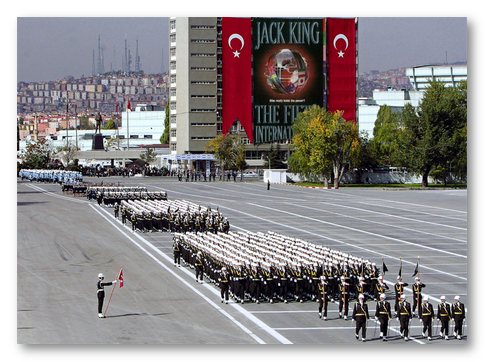I was in the dog park, on the beach, completely engrossed in The Brothers Karamazov, when a poodle came up, with a man attached at the other end of the leash.
"Dostoyevsky?" Poo-poohed the poodle (or perhaps it was the man?), its tail in the book.
I looked up, all dazed, my head, my whole being lost in the story.
The poodle went on, "It's all people sitting and talking."
At last it got to me (I have a dog, I speak their language.) So I replied, "But did you hear what they have to say?"
The poodle, "I wouldn't give him a time of day."
I read out loud:
“And when,” I cried out to him bitterly, “when will that come to pass? and will it ever come to pass? Is not it simply a dream of ours?”
“What then, you don’t believe it,” he said. “You preach it and don’t believe it yourself. Believe me, this dream, as you call it, will come to pass without doubt; it will come, but not now, for every process has its law. It’s a spiritual, psychological process. To transform the world, to recreate it afresh, men must turn into another path psychologically. Until you have become really, in actual fact, a brother to every one
, brotherhood will not come to pass. No sort of scientific teaching, no kind of common interest, will ever teach men to share property and privileges with equal consideration for all. Every one will think his share too small and they will be always envying, complaining and attacking one another. You ask when it will come to pass; it will come to pass, but first we have to go through the period of isolation.”
“What do you mean by isolation?” I asked him.
“Why, the isolation that prevails everywhere, above all in our age—it has not fully developed, it has not reached its limit yet. For every one strives to keep his individuality as apart as possible, wishes to secure the greatest possible fullness of life for himself; but meantime all his efforts result not in attaining fullness of life but self-destruction, for instead of self-realization he ends by arriving at complete solitude. All mankind in our age have split up into units, they all keep apart, each in his own groove; each one holds aloof, hides himself and hides what he has, from the rest, and he ends by being repelled by others and repelling them. He heaps up riches by himself and thinks, ‘How strong I am now and how secure,’ and in his madness he does not understand that the more he heaps up, the more he sinks into self-destructive impotence. For he is accustomed to rely upon himself alone and to cut himself off from the whole; he has trained himself not to believe in the help of others, in men and in humanity, and only trembles for fear he should lose his money and the privileges that he has won for himself. Everywhere in these days men have, in their mockery, ceased to understand that the true security is to be found in social solidarity rather than in isolated individual effort. But this terrible individualism must inevitably have an end, and all will suddenly understand how unnaturally they are separated from one another. It will be the spirit of the time, and people will marvel that they have sat so long in darkness without seeing the light. But, until then, we must keep the banner flying. Sometimes even if he has to do it alone, and his conduct seems to be crazy, a man must set an example, and so draw men’s souls out of their solitude, and spur them to some act of brotherly love, that the great idea may not die.”
The Brothers Karamazov, by
Fyodor Dostoyevsky.




 Feeling foggy about the world around you? Read literature:
Feeling foggy about the world around you? Read literature:
